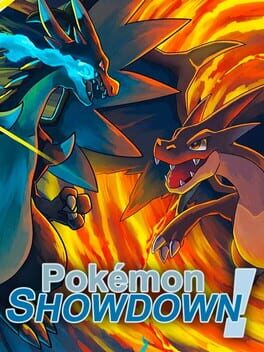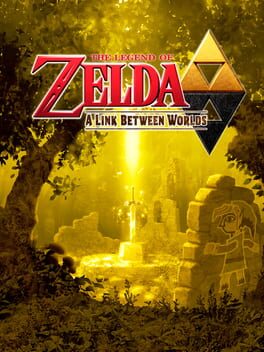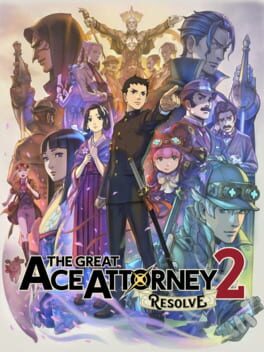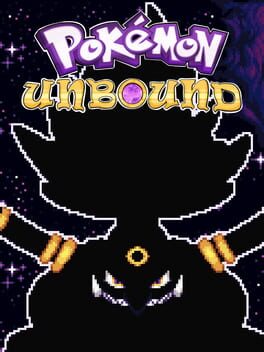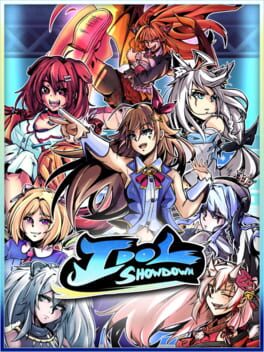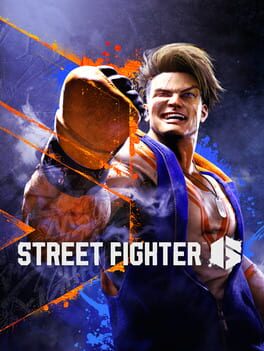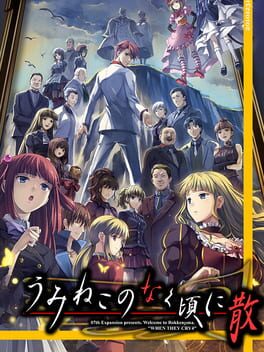maradona
2019
2011
The moment I downloaded Wonderful Everyday, I realized that I’ve made a terrible mistake, as alongside the game’s installation folder there was a file that redirected to a website called “Fap for Fun”. Despite trying to deny its very essence, Subarashiki Hibi always felt like an erotic game first, and a drama story second. The themes that it tries to tackle such as lack of proper treatment and respect to mental illnesses, cult mentality and its propagation, and ironically, porn addiction, are hidden beneath a total of disheartening 17 explicit h-scenes, that are most of the time directly tied to the story, instead of “bonus scenes” that you can turn on and off in the menu.
The story is filled with moments that start off tackling a properly interesting theme or topic and then proceed to take a complete 180, becoming just another harmless predictable scene that vomits cliché hentai tropes. The appeal of subahibi comes from the fact that there are some genuinely great and creative segments of storytelling that could only ever be experienced in a visual novel format, but those precious moments are deep within a sea of ecchi mediocrity. You might be asking yourself, “how worth is this dive?”, and to properly answer that, and also why such a specific eroge gathered a cult following as a fourth eye opening provocative narrative, we first have to talk about how VN’s tend to implement this type of adult content (If you are sensitive to topics such as these, please sit this one out).
Lewdness has always been associated with visual novels, no matter where you look at it. Whether we’re judging possibly the first one ever released, or some other “classics” such as sex, and it’s perfectly named sequel, sex 2, and many other games mostly for the pc-98, these titles found a lot of success predominantly aiming towards a lonely straight male demographic. The inclusion of either full on explicit h-scenes or elements from dating sims, sometimes even both, was to be fully expected in this media’s infancy. Stories during this period sometimes avoided this topic altogether, however, that was a gamble not everyone decided to take, as the mere inclusion of some sexual content would likely increase for sure the number of people who would want to give your novel a shot. After some years, a weird symbiotic relation started to develop, as a lot of independent novels from the early 00’s tried to hook the viewer with promises of showing NSFW material, but made them keep wanting to read until the very end, due to the proper story that it was telling.
Tsukihime, for example, would not only work, but also be massively improved without every single despicable fetishized rape scene or dialogue mention. It’s very telling that in the 2021 remake of the novel, the studio behind it decided to pretend that all h-scenes didn’t happen and adapted the script to it, essentially turning the story into a proper cohesive shonen that doesn’t perform mental gymnastics to justify rape whenever possible, solidifying it as the definitive way to experience the novel. In a less extreme case, we can also take a glance at Higurashi, who early on put a lot of emphasis in long fetishized sequences that replicated staples from ecchi stories, but gradually stopped being as frequent, as the narrative started to find its footing, besides some occasional nods in bad taste from Ryukishi07. What makes Higurashi’s case interesting, is the fact that it’s the opposite approach from Subarashiki Hibi: The ecchi scenes contradicted one of the game’s themes about child protection, while in Wonderful Everyday, you'd see even more scenes depending in how essential to the theme the chapter was.
Through the years, visual novels started to gradually become more and more respected as a media in no small part due to works such as the previous ones mentioned. By slowly being freed from its private horny jail, a wave of new stories started being developed for other demographics, like straight women or non horny men, eventually attracting the attention of people outside of Japan. The late 00’s were marked by some novels being developed, translated, and appreciated by foreigners, which even saw some works from previous years such as Saya no Uta, Umineko and Fate/Stay Night gathering a considerable late cult-like following as classics.
Despite all that however, Subahibi opted to tackle themes strictly tied to pornography, and it still became relatively famous around the newer circle of VN’s that westerners appreciated. Direct comparisons to the infamous 'Boku no Pico' anime can be made, as both weren't the first nor best ones to tackle niche erotic themes in a media mostly seen at the time outside of Japan as "something for kids". Both of them ended up gathering attention due to the timing and difficulty of access to other products of the same medium during their respectable releases.
Written primarily aimed towards a straight male demographic and with the premise of showing gratuitous NSFW material, it has a completely pointless first chapter that lasts around 4 hours and is solely made as a symbiotic hook. After reading the novel to its full extent and revisiting the beginning chapter, I hoped to find a new meaning to what exactly happened, but it just left me feeling very disappointed. A pattern that you'll see from the novel that plays an important role in the chapter, is that there are plenty of useless name drops to a lot of other "intellectual media", that has little to do with the story. The only use for such is that it tries to show some validation to the reader to what they are reading, as in pretending it's an actual respectable story that just so happens to have a generic and forgettable anime art style.
This is your warning for spoilers now, if you’re still thinking about giving this one a shot, please do keep in mind that it’s somewhat long and tackles frail topics without proper respect.
The second chapter thankfully denies the eroge counterpart and goes for a more eerie atmosphere, showing the ascension of the typical nerd loser, Mamiya Takuji, as an actual God among men. This was a very surprising yet welcome change, and in hindsight I appreciate this chapter more, as it could have been the start of something great, however, it also has some of the shallowness the early chapter had, but in a different way. I didn’t care for the opening chapter at all but I always understood why they were acting in such a one dimensional porn-like way, meaning that even if the scene was just an excuse to show a panty shot, it would still make some sense narrative-wise. In the second one however, Yuki, the protagonist once again, and everyone else involved, acted in a way that felt like their actions were randomized. It mostly makes sense in the hours to come after the “twist” but that doesn’t help the fact that it’s just another 4 hours of infodump done wrong as Yuki only opts to delve deep in the subject of the underground forum and not answer some other key areas. Essential plot points such as Mamiya’s family, or the twins suddenly acting aggressive towards him, or pretty much everything relating to Zakuro, who was the most important part of the opening chapter, are put under a pretentious rug called "Don't think about it too much".
It’s really interesting seeing how she reaches to some logical conclusions while reading, but it’s similar to a game of Clue, where you’ll discover what happened and feel good about it, but in the end you were so unattached to the characters that you just accept Colonel Mustard probably just wanted to use that knife in the Hall. Things aren’t better for Mamiya’s side, as the only real segment of him showing some faint semblance of distinctive personality was in one of the most embarrassing written scenes I have ever seen in any visual novel.
Takuji’s pitiful speech, his spotlight moment, is one that can only truly be impressive for those that, to put it nicely, like to mention quotes or name drop philosophers without knowing what they stood for, which should say something about the shallowness of most VN’s as the scene is hailed as a sort of “redpill”. His discourse is plagued with small problems, but one of the most fundamental ones is that death became suppressed dogma in modern society, which doesn’t make sense if you also argue that philosophy fundamentally changed it’s key areas with time, and that religion is a type of philosophy, which is true by definition but doesn't give room for your point. If you are confused, it's like arguing how old movies embraced nationalism as a fundamental part of their stories and then argue that there is a conspiracy nowadays to have movies not embracing this pillar, without realizing that it was something related to the time period instead of the media, while also agreeing that movies changed fundamentally with time which leads to the development of a direct counter culture.
When called out by Yuki, who makes a flimsy and flawed argument for someone that reads Kant, about how he sees human lives, Takuji argues that it’s not charlatanism because “the only thing that matters is that he is right in the end”. All that was missing from this scene was a Big Bang Theory laugh track to finish it off: the amazing manifest that ends with the argument “I’m the chad and you’re soyjack”. The point of the scene, as pointed out by a friend, is to display that Takuji is wrong, as he even hits a girl in the class and talks about how people attribute others as being crazy when they don’t understand, which internally forced the author into writing others as the dumbest human beings possible, even making the history teacher respond to Mamiya with “I don’t know” when asked what part of what he said was wrong. In retrospect I partially agree with my friend’s take, but I think the framing and the fact that he was shown to posses godlike powers makes me think that they wanted to sneak in some truths in his arguments to justify him being in the wrong by just making him unnecessarily aggressive and rude, like how Marvel wrote Black Panther’s villain, Killmonger, in the 2018 movie.
Third chapter is all about Takuji’s point of view, which makes the second chapter nearly useless and redundant, as his point of view is far more interesting and makes Yuki’s actions feel more humane as she doesn’t seem like your typical dumb yet top notch detective. This is THE CHAPTER for h-scenes, featuring a lot of gratuitous sexual violence that are handled very poorly, hitting nearly every slot in the kink bingo: rape, feminization, bdsm, more rape, futanari, public humiliation, more rape again, torture, dismemberment, and of course, even more rape. The unlikely underdog story from rape victim to serial rapist is just flat out disrespectful and ends up helping me prove my point that there isn’t a single piece of media that benefited from flat out showing rape scenes instead of making them simply implied. After enduring an entire sequence in which Takuji is abused in every way possible, and knowing what happened in the previous chapter, and how he treated Zakuro to this games most gratuitous sex scene ever, all that I could think was how he would do everything the same if he was in their places but much worse, to which latter parts of the VN proved me right. I hope everyone will agree with me on this one when I say this is the most ill-mannered way to write a story on the subject.
Chapter 4 is all about an abuse victim who starts seeing visions of God telling her to kill herself as revenge, to which the game shows that it was the right thing to do in later chapters. No further comments.
Jabberwocky onwards, is when the story finally compensates for you enduring the hot steamy garbage from before. It’s a chapter about Mamiya’s most hated bully, Yuuki Tomosane, the only actually good character in the story. Tomosane’s chapter is fascinating, it pulls the rug and explains the twist that he and Yuki were personalities developed by Takuji, they all lived in the same house, and the twins didn’t actually exist as individuals. The framing is also top notch, making you know what risks he’s taking even if you think you know how it’s going to end. Mind blowing after mind blowing scene shows a new perspective I didn’t thought was possible from the story, which made this chapter, excluding the massively homophobic comments, a blast to read. The sequel chapters, Which Dreamed It and Jabberwocky 2, are also really welcome additions to the story, although not as jaw dropping, that expand the narrative in meaningful ways that have the unfortunate consequence of making Mamiya’s torturous life feel “justified”.
2 / 3 of Subahibi is dedicated for making the reader as tortured as the girls in the story, which tries to make up for the last 1 / 3 which gives the feeling that you’ve conquered the narrative, taking a stance against what was stablished early on. That’s a really interesting concept, however, it was one that was done better in a novel that you might have heard about: The House in Fata Morgana. Written in a way that’s more mature, gracious, and made to scare easily impressionable VN fans, it deals with dark themes as well, but with a proper respect for the situation in which the characters find themselves in. The also really competent sequel, A Requiem for Innocence, talks about similar themes from Subahibi which are it’s main justification for shoving garbage eroge topes, having the characters live in a brothel and dealing with an oppressive threat that haunts their frail psychology. Their themes are obviously not comparable on a 1 to 1 basis, however even if it's lowest points, one shows the other that you don’t have to treat every female character as pawns that merely exist to fuck when a male character so desires.
Main point is, what Wonderful Everyday does well, is done better in other visual novels, and what it does wrong, could only be done poorly here. Unless you really like the sensation of scavenging through hours of garbage to find gold that doesn't shine as bright as others given for free, maybe this one is not for you. If you still really want to know how this mess feels, I guess there’s no saving, since the premise is interesting nonetheless.
There is an undeniable value in early 10’s VN culture with Subahibi that made it stand out, however its vile and disrespectful approach to sensitive topics were a problem even when it launched, and it gets more outdated by the year as visual novels get more sophisticated, denying its origins as a media that started with a game in which you undress a minor for fun, and starting to develop more on the lines of being an interactive story. After multiple warnings by different people telling me to stop reading it, I endured through the end of Subarashiki Hibi hoping to find something that was clearly never meant to be there, as alongside the game’s installation folder there was a file that redirected to a website called “Fap for Fun”.
The story is filled with moments that start off tackling a properly interesting theme or topic and then proceed to take a complete 180, becoming just another harmless predictable scene that vomits cliché hentai tropes. The appeal of subahibi comes from the fact that there are some genuinely great and creative segments of storytelling that could only ever be experienced in a visual novel format, but those precious moments are deep within a sea of ecchi mediocrity. You might be asking yourself, “how worth is this dive?”, and to properly answer that, and also why such a specific eroge gathered a cult following as a fourth eye opening provocative narrative, we first have to talk about how VN’s tend to implement this type of adult content (If you are sensitive to topics such as these, please sit this one out).
Lewdness has always been associated with visual novels, no matter where you look at it. Whether we’re judging possibly the first one ever released, or some other “classics” such as sex, and it’s perfectly named sequel, sex 2, and many other games mostly for the pc-98, these titles found a lot of success predominantly aiming towards a lonely straight male demographic. The inclusion of either full on explicit h-scenes or elements from dating sims, sometimes even both, was to be fully expected in this media’s infancy. Stories during this period sometimes avoided this topic altogether, however, that was a gamble not everyone decided to take, as the mere inclusion of some sexual content would likely increase for sure the number of people who would want to give your novel a shot. After some years, a weird symbiotic relation started to develop, as a lot of independent novels from the early 00’s tried to hook the viewer with promises of showing NSFW material, but made them keep wanting to read until the very end, due to the proper story that it was telling.
Tsukihime, for example, would not only work, but also be massively improved without every single despicable fetishized rape scene or dialogue mention. It’s very telling that in the 2021 remake of the novel, the studio behind it decided to pretend that all h-scenes didn’t happen and adapted the script to it, essentially turning the story into a proper cohesive shonen that doesn’t perform mental gymnastics to justify rape whenever possible, solidifying it as the definitive way to experience the novel. In a less extreme case, we can also take a glance at Higurashi, who early on put a lot of emphasis in long fetishized sequences that replicated staples from ecchi stories, but gradually stopped being as frequent, as the narrative started to find its footing, besides some occasional nods in bad taste from Ryukishi07. What makes Higurashi’s case interesting, is the fact that it’s the opposite approach from Subarashiki Hibi: The ecchi scenes contradicted one of the game’s themes about child protection, while in Wonderful Everyday, you'd see even more scenes depending in how essential to the theme the chapter was.
Through the years, visual novels started to gradually become more and more respected as a media in no small part due to works such as the previous ones mentioned. By slowly being freed from its private horny jail, a wave of new stories started being developed for other demographics, like straight women or non horny men, eventually attracting the attention of people outside of Japan. The late 00’s were marked by some novels being developed, translated, and appreciated by foreigners, which even saw some works from previous years such as Saya no Uta, Umineko and Fate/Stay Night gathering a considerable late cult-like following as classics.
Despite all that however, Subahibi opted to tackle themes strictly tied to pornography, and it still became relatively famous around the newer circle of VN’s that westerners appreciated. Direct comparisons to the infamous 'Boku no Pico' anime can be made, as both weren't the first nor best ones to tackle niche erotic themes in a media mostly seen at the time outside of Japan as "something for kids". Both of them ended up gathering attention due to the timing and difficulty of access to other products of the same medium during their respectable releases.
Written primarily aimed towards a straight male demographic and with the premise of showing gratuitous NSFW material, it has a completely pointless first chapter that lasts around 4 hours and is solely made as a symbiotic hook. After reading the novel to its full extent and revisiting the beginning chapter, I hoped to find a new meaning to what exactly happened, but it just left me feeling very disappointed. A pattern that you'll see from the novel that plays an important role in the chapter, is that there are plenty of useless name drops to a lot of other "intellectual media", that has little to do with the story. The only use for such is that it tries to show some validation to the reader to what they are reading, as in pretending it's an actual respectable story that just so happens to have a generic and forgettable anime art style.
This is your warning for spoilers now, if you’re still thinking about giving this one a shot, please do keep in mind that it’s somewhat long and tackles frail topics without proper respect.
The second chapter thankfully denies the eroge counterpart and goes for a more eerie atmosphere, showing the ascension of the typical nerd loser, Mamiya Takuji, as an actual God among men. This was a very surprising yet welcome change, and in hindsight I appreciate this chapter more, as it could have been the start of something great, however, it also has some of the shallowness the early chapter had, but in a different way. I didn’t care for the opening chapter at all but I always understood why they were acting in such a one dimensional porn-like way, meaning that even if the scene was just an excuse to show a panty shot, it would still make some sense narrative-wise. In the second one however, Yuki, the protagonist once again, and everyone else involved, acted in a way that felt like their actions were randomized. It mostly makes sense in the hours to come after the “twist” but that doesn’t help the fact that it’s just another 4 hours of infodump done wrong as Yuki only opts to delve deep in the subject of the underground forum and not answer some other key areas. Essential plot points such as Mamiya’s family, or the twins suddenly acting aggressive towards him, or pretty much everything relating to Zakuro, who was the most important part of the opening chapter, are put under a pretentious rug called "Don't think about it too much".
It’s really interesting seeing how she reaches to some logical conclusions while reading, but it’s similar to a game of Clue, where you’ll discover what happened and feel good about it, but in the end you were so unattached to the characters that you just accept Colonel Mustard probably just wanted to use that knife in the Hall. Things aren’t better for Mamiya’s side, as the only real segment of him showing some faint semblance of distinctive personality was in one of the most embarrassing written scenes I have ever seen in any visual novel.
Takuji’s pitiful speech, his spotlight moment, is one that can only truly be impressive for those that, to put it nicely, like to mention quotes or name drop philosophers without knowing what they stood for, which should say something about the shallowness of most VN’s as the scene is hailed as a sort of “redpill”. His discourse is plagued with small problems, but one of the most fundamental ones is that death became suppressed dogma in modern society, which doesn’t make sense if you also argue that philosophy fundamentally changed it’s key areas with time, and that religion is a type of philosophy, which is true by definition but doesn't give room for your point. If you are confused, it's like arguing how old movies embraced nationalism as a fundamental part of their stories and then argue that there is a conspiracy nowadays to have movies not embracing this pillar, without realizing that it was something related to the time period instead of the media, while also agreeing that movies changed fundamentally with time which leads to the development of a direct counter culture.
When called out by Yuki, who makes a flimsy and flawed argument for someone that reads Kant, about how he sees human lives, Takuji argues that it’s not charlatanism because “the only thing that matters is that he is right in the end”. All that was missing from this scene was a Big Bang Theory laugh track to finish it off: the amazing manifest that ends with the argument “I’m the chad and you’re soyjack”. The point of the scene, as pointed out by a friend, is to display that Takuji is wrong, as he even hits a girl in the class and talks about how people attribute others as being crazy when they don’t understand, which internally forced the author into writing others as the dumbest human beings possible, even making the history teacher respond to Mamiya with “I don’t know” when asked what part of what he said was wrong. In retrospect I partially agree with my friend’s take, but I think the framing and the fact that he was shown to posses godlike powers makes me think that they wanted to sneak in some truths in his arguments to justify him being in the wrong by just making him unnecessarily aggressive and rude, like how Marvel wrote Black Panther’s villain, Killmonger, in the 2018 movie.
Third chapter is all about Takuji’s point of view, which makes the second chapter nearly useless and redundant, as his point of view is far more interesting and makes Yuki’s actions feel more humane as she doesn’t seem like your typical dumb yet top notch detective. This is THE CHAPTER for h-scenes, featuring a lot of gratuitous sexual violence that are handled very poorly, hitting nearly every slot in the kink bingo: rape, feminization, bdsm, more rape, futanari, public humiliation, more rape again, torture, dismemberment, and of course, even more rape. The unlikely underdog story from rape victim to serial rapist is just flat out disrespectful and ends up helping me prove my point that there isn’t a single piece of media that benefited from flat out showing rape scenes instead of making them simply implied. After enduring an entire sequence in which Takuji is abused in every way possible, and knowing what happened in the previous chapter, and how he treated Zakuro to this games most gratuitous sex scene ever, all that I could think was how he would do everything the same if he was in their places but much worse, to which latter parts of the VN proved me right. I hope everyone will agree with me on this one when I say this is the most ill-mannered way to write a story on the subject.
Chapter 4 is all about an abuse victim who starts seeing visions of God telling her to kill herself as revenge, to which the game shows that it was the right thing to do in later chapters. No further comments.
Jabberwocky onwards, is when the story finally compensates for you enduring the hot steamy garbage from before. It’s a chapter about Mamiya’s most hated bully, Yuuki Tomosane, the only actually good character in the story. Tomosane’s chapter is fascinating, it pulls the rug and explains the twist that he and Yuki were personalities developed by Takuji, they all lived in the same house, and the twins didn’t actually exist as individuals. The framing is also top notch, making you know what risks he’s taking even if you think you know how it’s going to end. Mind blowing after mind blowing scene shows a new perspective I didn’t thought was possible from the story, which made this chapter, excluding the massively homophobic comments, a blast to read. The sequel chapters, Which Dreamed It and Jabberwocky 2, are also really welcome additions to the story, although not as jaw dropping, that expand the narrative in meaningful ways that have the unfortunate consequence of making Mamiya’s torturous life feel “justified”.
2 / 3 of Subahibi is dedicated for making the reader as tortured as the girls in the story, which tries to make up for the last 1 / 3 which gives the feeling that you’ve conquered the narrative, taking a stance against what was stablished early on. That’s a really interesting concept, however, it was one that was done better in a novel that you might have heard about: The House in Fata Morgana. Written in a way that’s more mature, gracious, and made to scare easily impressionable VN fans, it deals with dark themes as well, but with a proper respect for the situation in which the characters find themselves in. The also really competent sequel, A Requiem for Innocence, talks about similar themes from Subahibi which are it’s main justification for shoving garbage eroge topes, having the characters live in a brothel and dealing with an oppressive threat that haunts their frail psychology. Their themes are obviously not comparable on a 1 to 1 basis, however even if it's lowest points, one shows the other that you don’t have to treat every female character as pawns that merely exist to fuck when a male character so desires.
Main point is, what Wonderful Everyday does well, is done better in other visual novels, and what it does wrong, could only be done poorly here. Unless you really like the sensation of scavenging through hours of garbage to find gold that doesn't shine as bright as others given for free, maybe this one is not for you. If you still really want to know how this mess feels, I guess there’s no saving, since the premise is interesting nonetheless.
There is an undeniable value in early 10’s VN culture with Subahibi that made it stand out, however its vile and disrespectful approach to sensitive topics were a problem even when it launched, and it gets more outdated by the year as visual novels get more sophisticated, denying its origins as a media that started with a game in which you undress a minor for fun, and starting to develop more on the lines of being an interactive story. After multiple warnings by different people telling me to stop reading it, I endured through the end of Subarashiki Hibi hoping to find something that was clearly never meant to be there, as alongside the game’s installation folder there was a file that redirected to a website called “Fap for Fun”.
2020
1998
Bitches irl:
" I'm gay I can't drive sorry🤣🤣🤣🤣🤣"
The same bitches in Ridge Racer Type 4:
" OMG I just did a 1cc hard mode run and lost to my previous record by 12 seconds my drifting accuracy is just 98% my fuel management is off by 4.6% I must improve on my times to impress the Pacman team (🥰🥰🥰) further. I must feel the heat. WHEN THE TIRES KISS THEEEEEEE STREEEEEEEEEEEEEEEEEEEET. "
" I'm gay I can't drive sorry🤣🤣🤣🤣🤣"
The same bitches in Ridge Racer Type 4:
" OMG I just did a 1cc hard mode run and lost to my previous record by 12 seconds my drifting accuracy is just 98% my fuel management is off by 4.6% I must improve on my times to impress the Pacman team (🥰🥰🥰) further. I must feel the heat. WHEN THE TIRES KISS THEEEEEEE STREEEEEEEEEEEEEEEEEEEET. "
2023
2023
Good morning.
This farewell is as sad for me as it is for you.
I’ve prepared a goodbye party for tonight. A game competition will be included as well, so please feel free to participate.
The difficulty is small, but not to be trifled with.
As this will be the last opportunity, why not take part yourself?
Written in 1928 by S. S. Van Dine, the article “Twenty Rules for Writing Detective Stories” is a fascinating collection of 20 writing regulations that could, in theory, elevate a given investigation tale to its best possible iteration. Described by close friend and timeless author T. S. Eliot, as to one day having a nervous breakdown and spending the following 2 years in bed reading more than two thousand detective stories, the poet argues that during that time, Van Dine methodically distilled the genre’s formulas and began writing novels, to which he considered them to be masterpieces.
Out of his absurdly strict rulings, some may argue that most of them can in fact improve the narrative such as (10) stating that the culprit must play a role in the story and (15) stating that the truth of the problem must at all times be apparent, giving so a chance to the reader to decipher the story alongside the detective and not having to rely on hunches from time to time. The reception for his failed jurisdiction on the detective genre became a moderate success from the makers of such stories but not so much by the fans. It rejected possible clichés such as (11) servants not being able to be the culprits, and narratives that were not explored around enough at time such as (12) multiple culprits. People like clichés what can you do...
Over time however, reception of it started to get even worse, not only because of what was mentioned before, but in no small part due to the release in the following year of a much moreCHAD reasonable article dissecting the mystery genre and its inner workings, called Knox's Decalogue, written by Ronald Knox. In one of literature's biggest middle finger ever, his 10 points were almost 1 to 1 with half of the Twenty Rules, prioritized giving the viewer a fair challenge of a tale, but this time allowing cliché tropes and creative liberties about its possible cast. Imagine Van Dine’s reaction seeing that become overwhelmingly more praised from writers and viewers alike. Take this big fucking L, nerd.
And while we get gaslit into thinking that the viewers rights to “fight back” in the intellectual game wasnt started by Dine, he will probably keep seething in his grave over the fact that some rules are obviously made to be broken at times, simply for fun. Even looking at the books in "golden age", some break fundamental rules that are praised nonetheless for it's creativity, as sometimes you can fix this unfairness in the game by using foreshadowing effectively (hats off to Disco Elysium). I am here solely to add to his perpetual torment in the history books arguing that his ruling number 3 in particular, is fundamentally why people like me and other highly sexy and intellectual individuals preffer theCHAD reasonable Knox's Decalogue more.
COMMANDMENT 3:
THERE MUST BE NO LOVE INTEREST. THE BUSINESS IN HAND IS TO BRING A CRIMINAL TO THE BAR OF JUSTICE, NOT TO BRING A LOVELORN COUPLE TO THE HYMENEAL ALTAR
It’s easy to just stop here and think about how many great mysteries would have not existed or be less impactful had every writer followed up on that, but we have to remember that this comes from someone living in what was soon perceived as the “golden years” for said genre. While you could argue that love could bypass any resemblance of a logical reasoning to which it would be the ends but not the why’s (aka when love devolves into lunacy with the killer incessantly screaming “I loved her” while being taken away) these are far and few between to be argued on Van Dine’s favor. Human affection can and will lead to insanity, but if the ultimate end goal is also one, was it really love?
The important element about love as a reason that has failed to be comprehended here, is that it can take many forms that I simply wouldn’t have time to begin describing here, as with just the change of a simple word in “love for others” becoming “love of others” you can turn tragedy into fortune. While the advent of romantic love that is heavily implied here does mean that the amount of plausible given possibilities are diminished, lesser infinities are still endless.
Now I’m sorry, but will there EVER be a better motive to kill, murder and slaughter someone, than the reason that brings up the loss of reason itself?
I will go further. There CANNOT be a single plausible reason for a murder in a tale that values the life of its characters and doesn't treat them as pieces waiting to fall off the board, other than actions relating to the innate fondness of others that we so desperately need. A given character in a tale that has their own romantic life all figured out should never be the killer nor suspect, as the most impactful and sincere motivation, from the bottom of their hearts, cannot be present.
Van Dine’s precepts make it very clear that (17) crimes by house-breakers and bandits are the province of the police department, not of authors and brilliant amateur detectives. If you fail to treat your victims and killers with the same amount of respect for an action that isn’t guided by an illogical leap-of-faith that seeks adoration of some sort, was it really a murderer or an overly intricate common burglar?
Love is the reason we sin.
Love is the reason we go further.
Love is the reason we are humans.
And to put it extremely bluntly.
Love just makes us do some stupid ass shit.
“ Love is generous, love is merciful.
Love does not envy, it does not boast. “ - Zepar & Furfur
" At times, love can make the invisible visible. " - Featherine
“ The love we give away is the only love we keep. “ - Ushiromiya Ange
“ To fear love is to fear life, and vice-versa.
One must never embrace death as long as love persists. “ - Ronove
“ Without love, it cannot be seen. “ - Beatrice
.
.
.
.
.
.
.
.
.
.
.
.
.
.
.
.
.
.
.
.
Welp, I’ve used all my pretentiousness for now.
I know someone really special will be reading this soon so I’ll be brief now.
Merry Christmas Audrey.
I love you so much.
Do you want to be my girlfriend?
This farewell is as sad for me as it is for you.
I’ve prepared a goodbye party for tonight. A game competition will be included as well, so please feel free to participate.
The difficulty is small, but not to be trifled with.
As this will be the last opportunity, why not take part yourself?
Written in 1928 by S. S. Van Dine, the article “Twenty Rules for Writing Detective Stories” is a fascinating collection of 20 writing regulations that could, in theory, elevate a given investigation tale to its best possible iteration. Described by close friend and timeless author T. S. Eliot, as to one day having a nervous breakdown and spending the following 2 years in bed reading more than two thousand detective stories, the poet argues that during that time, Van Dine methodically distilled the genre’s formulas and began writing novels, to which he considered them to be masterpieces.
Out of his absurdly strict rulings, some may argue that most of them can in fact improve the narrative such as (10) stating that the culprit must play a role in the story and (15) stating that the truth of the problem must at all times be apparent, giving so a chance to the reader to decipher the story alongside the detective and not having to rely on hunches from time to time. The reception for his failed jurisdiction on the detective genre became a moderate success from the makers of such stories but not so much by the fans. It rejected possible clichés such as (11) servants not being able to be the culprits, and narratives that were not explored around enough at time such as (12) multiple culprits. People like clichés what can you do...
Over time however, reception of it started to get even worse, not only because of what was mentioned before, but in no small part due to the release in the following year of a much more
And while we get gaslit into thinking that the viewers rights to “fight back” in the intellectual game wasnt started by Dine, he will probably keep seething in his grave over the fact that some rules are obviously made to be broken at times, simply for fun. Even looking at the books in "golden age", some break fundamental rules that are praised nonetheless for it's creativity, as sometimes you can fix this unfairness in the game by using foreshadowing effectively (hats off to Disco Elysium). I am here solely to add to his perpetual torment in the history books arguing that his ruling number 3 in particular, is fundamentally why people like me and other highly sexy and intellectual individuals preffer the
COMMANDMENT 3:
THERE MUST BE NO LOVE INTEREST. THE BUSINESS IN HAND IS TO BRING A CRIMINAL TO THE BAR OF JUSTICE, NOT TO BRING A LOVELORN COUPLE TO THE HYMENEAL ALTAR
It’s easy to just stop here and think about how many great mysteries would have not existed or be less impactful had every writer followed up on that, but we have to remember that this comes from someone living in what was soon perceived as the “golden years” for said genre. While you could argue that love could bypass any resemblance of a logical reasoning to which it would be the ends but not the why’s (aka when love devolves into lunacy with the killer incessantly screaming “I loved her” while being taken away) these are far and few between to be argued on Van Dine’s favor. Human affection can and will lead to insanity, but if the ultimate end goal is also one, was it really love?
The important element about love as a reason that has failed to be comprehended here, is that it can take many forms that I simply wouldn’t have time to begin describing here, as with just the change of a simple word in “love for others” becoming “love of others” you can turn tragedy into fortune. While the advent of romantic love that is heavily implied here does mean that the amount of plausible given possibilities are diminished, lesser infinities are still endless.
Now I’m sorry, but will there EVER be a better motive to kill, murder and slaughter someone, than the reason that brings up the loss of reason itself?
I will go further. There CANNOT be a single plausible reason for a murder in a tale that values the life of its characters and doesn't treat them as pieces waiting to fall off the board, other than actions relating to the innate fondness of others that we so desperately need. A given character in a tale that has their own romantic life all figured out should never be the killer nor suspect, as the most impactful and sincere motivation, from the bottom of their hearts, cannot be present.
Van Dine’s precepts make it very clear that (17) crimes by house-breakers and bandits are the province of the police department, not of authors and brilliant amateur detectives. If you fail to treat your victims and killers with the same amount of respect for an action that isn’t guided by an illogical leap-of-faith that seeks adoration of some sort, was it really a murderer or an overly intricate common burglar?
Love is the reason we sin.
Love is the reason we go further.
Love is the reason we are humans.
And to put it extremely bluntly.
Love just makes us do some stupid ass shit.
“ Love is generous, love is merciful.
Love does not envy, it does not boast. “ - Zepar & Furfur
" At times, love can make the invisible visible. " - Featherine
“ The love we give away is the only love we keep. “ - Ushiromiya Ange
“ To fear love is to fear life, and vice-versa.
One must never embrace death as long as love persists. “ - Ronove
“ Without love, it cannot be seen. “ - Beatrice
.
.
.
.
.
.
.
.
.
.
.
.
.
.
.
.
.
.
.
.
Welp, I’ve used all my pretentiousness for now.
I know someone really special will be reading this soon so I’ll be brief now.
Merry Christmas Audrey.
I love you so much.
Do you want to be my girlfriend?
Now, I wasn't originally planning on giving this one a shot because I thought it was gonna be more generic wii mario, but I immediately picked it up when I saw that hilarious xbox brain poisoned tweet that went like:
THEY WANT YOU TO BELIEVE THIS
mario jumping around getting coins yahoo
IS BETTER THAN THIS
guy just walking in starfield doing fucking nothing
DONT WATCH THE GAME AWARDS!
THEY WANT YOU TO BELIEVE THIS
mario jumping around getting coins yahoo
IS BETTER THAN THIS
guy just walking in starfield doing fucking nothing
DONT WATCH THE GAME AWARDS!

